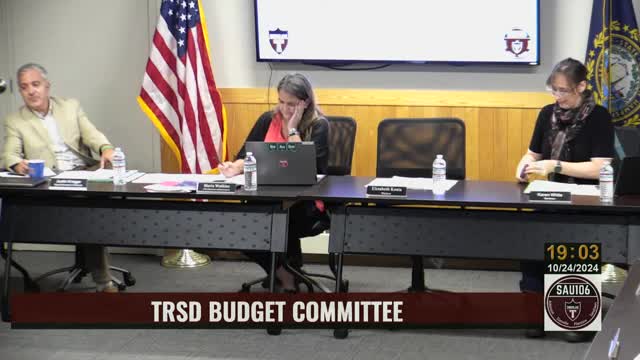Former board member and residents urge smaller 2025 school budget after $16 million surplus
Get AI-powered insights, summaries, and transcripts
Subscribe
Summary
Two community speakers urged the Timberlane Regional School District budget committee to propose a smaller 2025 budget and to align proposed spending with FY24 actuals after the district reported about a $16 million surplus.
Brian Boyle, a former member of the Timberlane school board, and resident Mary Ann Springer used public comment at a budget committee meeting to urge the committee to present a smaller 2025 budget and to tie next year’s requests closer to fiscal year 2024 actual spending.
Boyle, who served six years on the school board and as a budget committee liaison, told the committee he was “hoping that this board doesn't lose sight of that and try to get a budget that hits the voters in that low eighties,” referring to a target total budget figure rather than the higher numbers presented last year. He said the district recorded “some kind of record surplus” — described in the meeting as about $16 million — and said much of this reflected unfilled positions and other timing differences.
Springer presented a short analysis she said accompanied her remarks and told the committee many department requests exceed FY24 actuals by wide margins. She recommended that budgets “should be compared to fiscal year 24 actuals,” and that differences from last year’s actual spending should be fully explained during forthcoming presentations.
The two speakers pressed the committee to require presenters to reconcile requested increases to what was actually spent in FY24, arguing that several department budgets submitted for FY26 appear substantially higher than last year’s outlays. Boyle and Springer cautioned that fixed costs such as collective-bargaining salary commitments and lease payments will constrain available discretionary funding and recommended the committee expect the administration to present budgets that reflect those realities.
No formal committee action was taken as part of the public-comment period; the remarks were recorded as public input ahead of the committee’s review of individual department budgets.
Looking ahead, both speakers urged the committee to probe line items that deviate materially from FY24 actuals and to require fuller justification where requested spending rises sharply.
